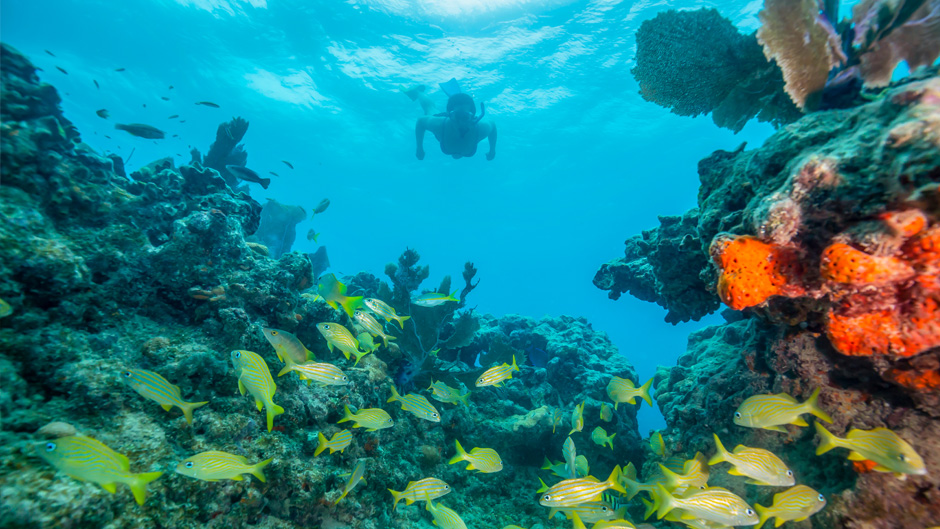Millions of tourists each year flock to Key West to visit all the gems the city has to offer. Florida’s southernmost tip is known for several tourist attractions—but what many do not know is that the city is home to the world’s third-largest barrier reef ecosystem.
In an effort to help preserve the great treasure, Key West has recently voted to ban the sale of sunscreens containing certain chemicals that some scientists believe can harm the living reefs.
City commissioners voted 6-1 this month to ban the sale of sunscreens that contain oxybenzone and octinoxate. The move comes less than a year after Hawaii’s governor signed a similar bill in an effort to help preserve coral reefs in that area. Both bans are expected to be implemented in January 2021. Studies have found the two substances are hurting corals tested in the lab, but many researchers believe there isn’t enough evidence to prove it could cause the same affects in the environment.
“We know these chemicals cause damage in studies, but it’s impossible to say in nature how much damage it’s done,” said Chris Langdon, the chair of the Department of Marine Biology and Ecology at the Rosenstiel School of Marine and Atmospheric Science.
Langdon said Florida and the Caribbean is down to just a tiny fraction of live coral cover compared to what was living in the area in the past.
“As recently as the 1970s, 50 percent of the area in reef environments was covered in healthy coral. Today there’s about 4 to 8 percent of living coral throughout the Florida Keys. We see the same trends in a lot of areas around the world,” he said.
Langdon thinks the massive die off of coral reefs is more likely due to disease, nutrient pollution, and most recently to climate change, which is warming summer temperatures beyond the limit of many coral species.
“It’s been pointed out that there are extremely remote coral reefs in the Indian Ocean that have had as much as 90 percent of corals die in the last few years, and there are no humans in that area that could have caused it. We’re pretty sure that the massive loss is due to changes in the environment, primarily temperature,” said Langdon.
Dr. Shasa Hu, a skin cancer physician at the Sylvester Comprehensive Cancer Center and an associate professor at the Dr. Phillip Frost Department of Dermatology and Cutaneous Surgery at the Miller School of Medicine, has her own reservations on the ban as well. She said oxybenzone and octinoxate are ingredients in sunscreen used for UVB protection. UVB is a portion of ultraviolet light that has been shown to be a key risk factor to skin cancer.
“Proof on the negative reaction to oxybenzone is still not 100 percent supported. The chemical is used in so many other products like cosmetics and plastic. To blame it all on sunscreen is alarming to me,” said Hu.
Hu also fears people may misinterpret the message of the ban, and not use sunscreen at all.
“I think clarifying the message specifically in regards to the ingredients rather than the use of sunscreen is very important to educate the public about the ultimate goal of this policy change,” said Hu.
She did point out that there are several alternative sunscreens available for those in the Florida Keys who are still concerned about taking care of their skin.
Although Langdon is uncertain about the ban, he said it’s a positive step forward to help preserve our oceans.
“We need to accurately assess everything that we’re putting into the environment because we don’t really know what affect all the chemicals we use on a daily basis have on it," said Langdon. “This ban is just one example of it, and it’s nice to see some bans being implemented.”

